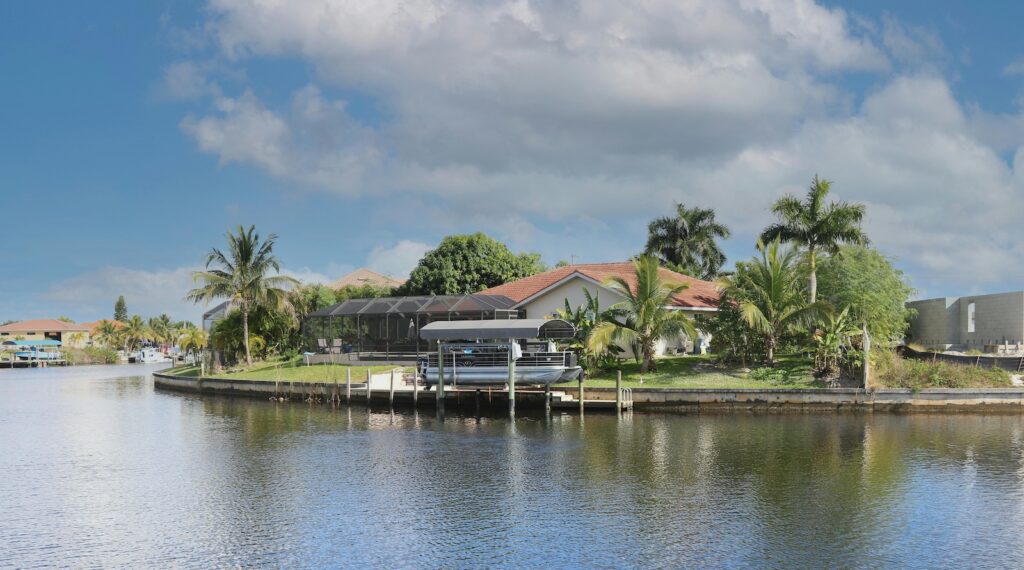Cape Coral Housing Market Collapse: Why Florida’s Real Estate Boom Is Now the Worst in America
Cape Coral, once a thriving hotspot for real estate investment, has transformed into what experts label the “worst housing market in America.” With housing prices slumping by 11% over the past two years and more than 12,000 homes currently listed for sale, the city’s property downturn is both steep and alarming. This detailed report explores the factors driving Cape Coral’s sudden market decline, the impact of climate change, and the political dynamics complicating the region’s recovery.
Sharp Decline in Housing Prices and Inventory Surge
The Cape Coral housing market has encountered a dramatic shift. Once a sought-after destination for buyers and investors, today’s market is saturated with unsold homes and plummeting prices. Realtor José Echevarria’s recent experience highlights the crisis:
“We had an open house for a property bought three years ago with plans to turn it into an Airbnb rental. The asking price dropped from $675,000 to $500,000 — $100,000 less than what the seller paid. We’re cutting the price further tomorrow.”
This significant price reduction underscores the desperation among homeowners to offload properties in a rapidly cooling market.
Key Market Indicators:
- Housing price drop: 11% since 2022
- Current listings: ~12,000 homes for sale
- Continued price declines: Expected in coming months
These statistics place Cape Coral in an unprecedented position, flipping from a seller’s paradise to a buyer’s market laden with risks.
Climate Change’s Role: Hurricanes, Floods, and Insurance Woes
The Gulf Coast of Florida, including Cape Coral, has endured catastrophic hurricanes through 2022, 2023, and 2024. These severe storms haven’t just destroyed property—they have increased insurance premiums to prohibitively high levels.
- Yearly hurricane impacts have led to widespread flooding.
- Insurance companies are passing on increased climate-driven costs to homeowners.
- Rental market effects: Both short-term and long-term renters face higher costs indirectly.
Climate change is intensifying hurricane frequency and severity, wrecking havoc on Florida’s real estate resilience. For homeowners and investors, rising insurance costs and flood damage stand as formidable obstacles to market recovery.
Learn more about the impact of climate change on coastal real estate.
Livability Challenges: Economic Struggles Amid Paradise
While Cape Coral is famously dubbed a Floridian paradise, local residents reveal a different reality facing economic hardship.
Sherri Sprinkle, a resident since 2022, describes her struggle:
“I was laid off last year and can’t find adequate work. The cost of living down here doesn’t match wages. Everyone’s begging for work.”
This growing workforce crunch and wage stagnation compound housing market issues, making the area less attractive for new residents and investors.
Political Climate: Climate Change Denial Hampers Solutions
Florida’s political landscape, dominated by Republicans, has taken a controversial stance on climate change and related policies:
- Climate discussion is restricted in state government.
- Clean energy initiatives, including offshore wind projects, have been repealed or banned.
- EV infrastructure funding under the Bipartisan Infrastructure Law has been blocked.
For example, the Florida Department of Transportation (DOT) created a website titled "Roads Are Not For Politics", ironically filled with culture-war complaints and skepticism of electric vehicles. This has delayed millions in federal funding critical for electric vehicle infrastructure development across the state.
What This Means for Florida’s Future Housing and Energy Landscape
Cape Coral’s struggles reflect deeper statewide challenges linked to climate vulnerability and policy inertia. As natural disasters increase, so does the financial burden on homeowners, renters, and insurance providers. Without effective climate action and support for sustainable infrastructure, Florida’s housing market downturn may persist or worsen.
For residents, investors, and policymakers, grappling with these realities is essential to avoid a prolonged crisis.
Summary: Cape Coral’s Housing Market Crisis at a Glance
- Dramatic 11% drop in housing prices over two years.
- Over 12,000 homes on the market, with prices still falling.
- Repeated hurricanes and flooding driving up insurance costs.
- Local labor market struggles contributing to economic imbalance.
- State government’s climate change denial blocking clean energy and EV progress.
Additional Resources:
- Understanding Florida’s hurricane risks and real estate
- How insurance costs affect home ownership
- The political hurdles to Florida’s clean energy future
Cape Coral’s housing market debacle serves as a cautionary tale for coastal cities balancing growth aspirations against climate realities. Only integrated solutions that address environmental risks and economic resilience can stave off further erosion of Florida’s real estate value and resident quality of life.


